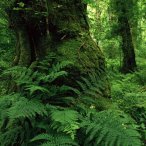English · Español

15 de octubre de 2012 | Entrevistas | Financiarización de la naturaleza | Anti-neoliberalismo | Bosques y biodiversidad | Derechos humanos | Justicia climática y energía
Nature as Business
Financialization of Nature at the COP on Biological Diversity
Descargar: MP3 (1.8 MB)
Descargar: MP3 (1.8 MB)
Descargar: MP3 (1.8 MB)
Financial mechanisms to protect forests are one of the key issues being discussed at the 11th Conference of the Parties (COP) to the UN Convention on Biological Diversity (CBD), which is taking place in Hyderabad, India. Friends of the Earth International is expressing “great concern” over the “financialization of nature”, which privatizes large areas of forests.
The environmental federation, with nearly 80 groups around the world, has representatives at the CBD. One of them is Isaac Rojas, Friends of the Earth international coordinator of the Forests and Biodiversity program, who made a special report for Real World Radio from the CBD.
Finance is one of the key issues being analyzed in Hyderabad, including the allocation of funds to implement agreements or to fulfill the goals of the CBD.
Friends of the Earth International and other social movements and organizations consider the funds available to comply with the agreements under the CBD, such as forest protection, should come from developed countries: “Due to their key role in the destruction of our forests, they have a historical and moral obligation to provide these resources”, said Rojas.
However, at the multilateral negotiations, the governments of industrialized countries fail to commit to allocate these funds. Meanwhile, developing countries believe that they are not responsible for destroying the ecosystems nor do they promise to provide funds. Such destruction is the result of a development model promoted by the global North since the mid 19th century.
In this scenario, the governments of developed countries are promoting the role of the private sector. “Friends of the Earth is concerned about the financialization of nature, that is to say, the participation of the financial sector in developing or raising funds to comply with the CBD goals”, said Rojas. “We are very concerned because this is related with false solutions. We have seen some of their negative impacts like, for example, climate change”.
Rojas spoke about the false solutions to the climate crisis, such as carbon trading, carbon bonds (emissions reductions certificates) from large projects like big hydroelectric dams or forestry monoculture plantations, which have serious environmental impacts in the global South. The owners of these projects, the governments of developed countries, are presented as the saviors of climate with these projects that only enable them to continue polluting.
False solutions also include agrofuels, nuclear power and genetically modified crops. The governments of the developed countries “seek incentives and benefits for the private sector and come up with ideas like creating financial bonds to generate resources” to protect forests. “We are concerned because in practice, these mechanisms privatize nature, which has terrible consequences for indigenous peoples, coastal communities and peasant communities”. Rojas mentioned that these privatized areas “are inhabited. There are peoples who have lived there for many generations, they have managed their forests and have the right to live there”.
He said that the financialization of nature is based on the idea of offsetting, as in the climate negotiations. “This is a terrible idea. If I have a mining or an oil company I can pollute and destroy a place in Madagascar, for example, but if I give money for the preservation of land in Laos, or in Nicaragua, I can continue polluting”. “This basically means that polluters pay to continue polluting”, said Rojas. Besides, big corporations greenwash their image.
Nature financialization mechanisms at the CBD are called “financial innovative mechanisms”. These issues will no longer be discussed at the CBD, which is a multilateral space, where social organizations are represented and can give their opinion. Banks and transnational corporations are promoting private spaces to discuss these financial issues. “For this reason, the CBD is a space of struggle, we cannot forget that this is being discussed in other spaces and that we have to continue strengthening our campaigns in defense of seeds, territory and against land grabbing”, concluded Rojas.








